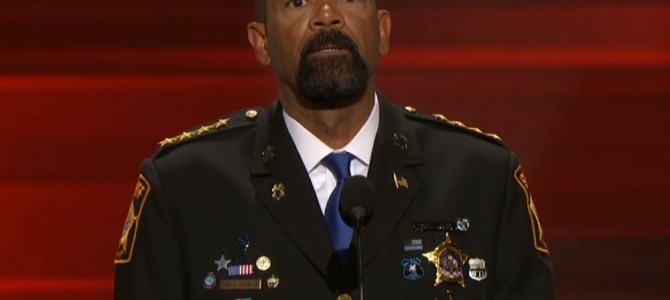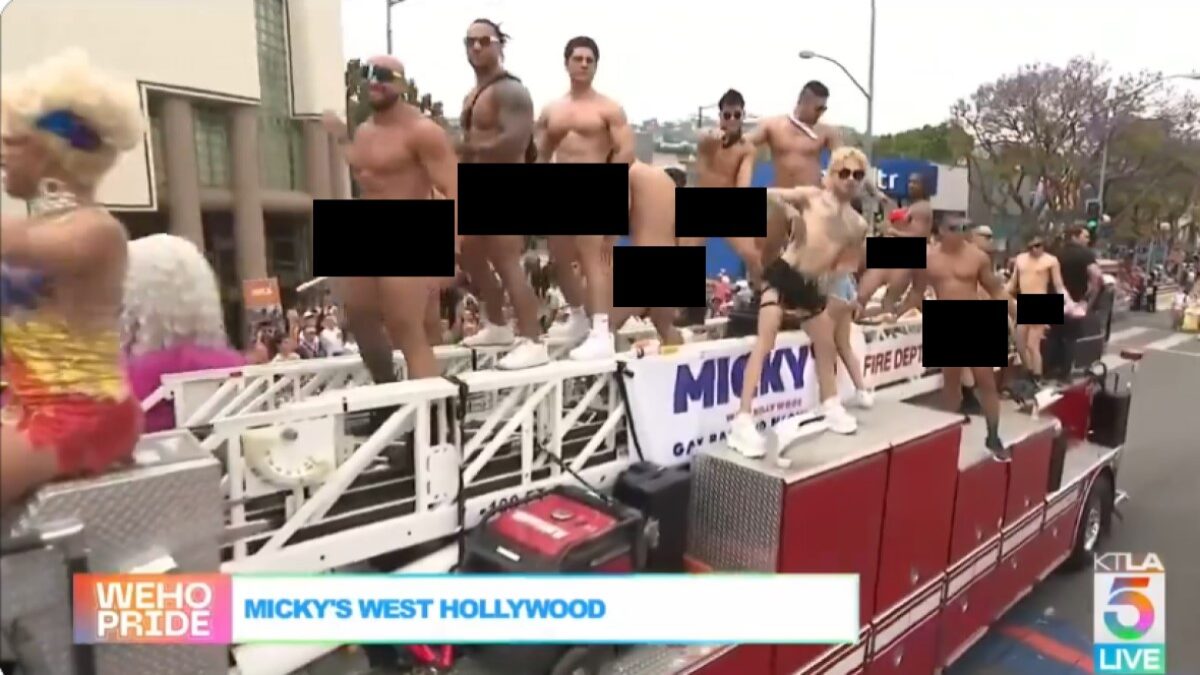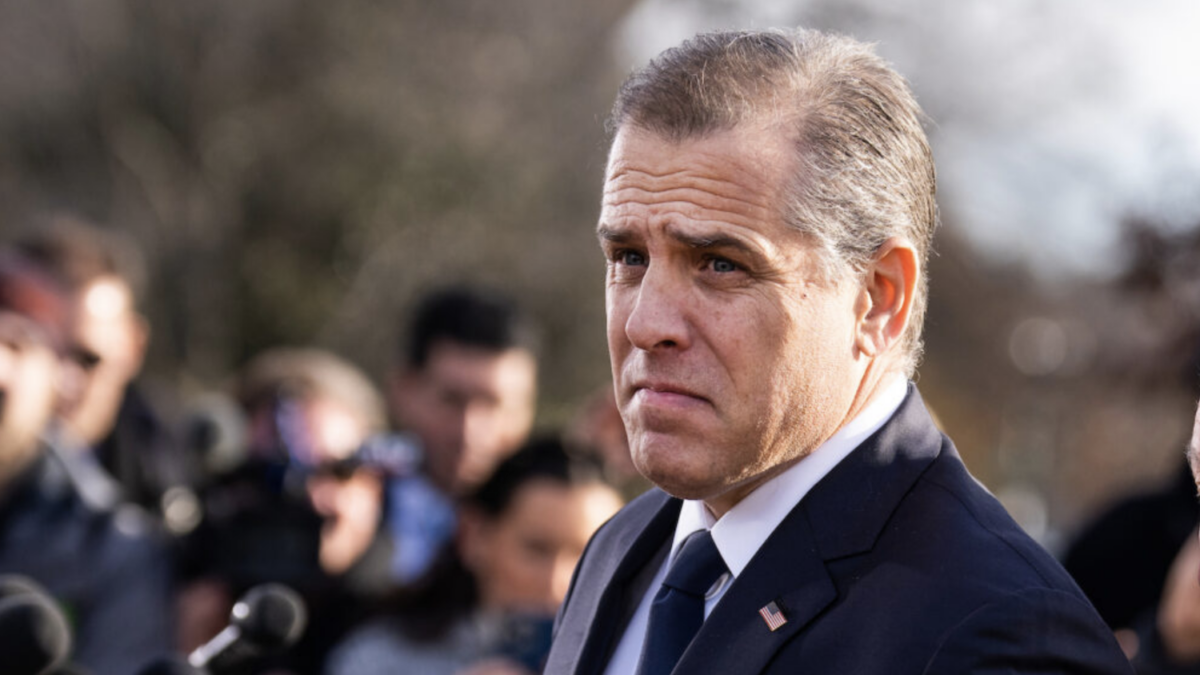
Nearly eight years after the historic election of Barack Obama as America’s first black president, we can see the disappointing result: a small-scale race war in America’s cities. That it’s a war was heralded by Milwaukee County Sheriff David Clarke, who denounced the recent attacks in Dallas and Baton Rouge as “anarchy” in his speech at the Republican convention.
In an op-ed in The Hill, he went further, describing the attacks as “guerrilla urban warfare against the police.”
These attacks may not yet amount to a war—it’s only two shooters—but it is forming an ominous pattern, a series of spontaneous one-man insurgencies. It is no coincidence that both killers had military training and served during the War on Terror; they’re taking their cue from the enemy they were sent to fight.
Obviously, these were disturbed young men, and we will find many reasons why they went wrong. But they were both given a direction and justification by black nationalism and particularly by the idea, which has come to be accepted as an unquestioned truth by many, that racist police forces are out of control and randomly murdering young black men in large numbers. This is the narrative that fuels the Black Lives Matter protests, and it gave the Dallas and Baton Rouge shooters the sense that they were simply fighting back against a war on young black men.
It will be no surprise to you, I hope, that this narrative is completely wrong. Actual numbers about police shootings show nothing of the sort.
Numbers Tell the True Story
A while back, some of my friends coined what we call the Doctrine of Numerical Superiority—the idea that numbers and measurements always take precedence over narrative and story-telling. They’re all scientists and engineers, and this is their way of trying to push back on behalf of their method of thinking against the sloppy methods of narrative-driven journalism.
One of those friends, Jack Wakeland, helped me put together some of the numbers about mass shootings, and those numbers produce a very different story than the one we’ve been given. Jack runs down a few of the figures.
“While gunshot homicides are not incredibly rare events—there are about 13,000 a year—wrongful shooting deaths by police are rare.
“The US did not keep good statistics on police shootings until last year, probably because the police who keep most of the statistics really didn’t want to. In 2015, the number of fatal police shootings came to 986.
“Approximately 30% of people fatally shot by police are black and about 50% are non-Hispanic whites. To say that 40 to 50% of all violent crime is committed by blacks (even though they make up only 12% of the male population) puts these numbers into perspective.”
In other words, the number of black men killed by police is more or less in line with the percentage of violent criminals who are black. Other studies back this up.
“It is only through detailed statistical analyses of police use of force reports that one can actually find if there are racial disparities. In one such analysis no racial bias against black suspects was found in the use of deadly force. A small bias against black suspects was found in the frequency with which non-lethal force was used; but this was balanced by an equally small and opposite bias found in favor of black suspects in the use of deadly force.
“How many of these police shootings are bad? How many are tragic accidents? How many are acts of reckless negligence? How many are straight-up murder? There is no number on that. And with the universal history of men-at-arms sticking up for each other and covering for each other (in all nations and all cultures), it is impossible to be certain of the truth.
“All those truths about the ‘blue wall of silence’ being said, one has to think that the number of mistaken or criminal homicides committed by the police must be 10% or less of the total number shot dead. That comes to less than 90 a year.”
There Is No Wave of Police Shootings
Actually, an earlier Washington Post analysis concluded that “the kind of incidents that have ignited protests in many U.S. communities—most often, white police officers killing unarmed black men—represent less than 4 percent of fatal police shootings,” which would put the number closer to 40. And we know from the high-profile cases that have been thoroughly examined in the press—cases like Michael Brown in Ferguson, Missouri—that as the real facts come to light, they often either support the conclusion that the shooting was justified or create enough legitimate uncertainty to make prosecuting the officer impossible.
As I have pointed out before, any encounter between police and citizens is potentially dangerous. There is plenty of scope for misunderstandings, accidents, poor training, poor judgment (on both sides), and just plain bad luck to result in a police officer shooting a citizen to death over a misdemeanor offense like a traffic stop or selling loose cigarettes. There’s even more scope for shootings in which the facts are so murky and confused that it is hard to tell a justified shooting from an unjustified one.
So it’s actually remarkable that it doesn’t happen more often.
But even if the number of illegitimate shootings is fewer than 90 per year, Jack points out, “as criminal and law-enforcement activity peaks in the summer months, they can occur several times in one week.” Two weeks before Philando Castile, for example, there was a similar case in Fresno involving a young white man. Yet, as Jack points out, “In a nation of 320 million people, these events are less common than being killed by a tornado.”
“In an innumerate nation, tens of millions of people are being led to believe that wrongful police killings are common and that they’re oppressing an entire race of men. They’re teasing this very big conclusion about disparate racial impacts from two or three cases out of an unidentified (and virtually unidentifiable) set of less than 90 cases of wrongful killing per year. To say such a conclusion is statistically and logically invalid does not capture its absurdity.”
That leads us to Sheriff Clarke’s other big claim, that the narrative of a police war on young black men is being pushed by “the false tales of the revolutionary Marxist forces, who most recently have rebranded themselves from Occupy Wall Street to Black Lives Matter.” In effect, he is accusing them of acting as a political front for the shooters, providing them their narrative and their sense of serving a cause; Sinn Fein to the shooters’ IRA.
It is going too far to describe all BLM supporters as “revolutionary Marxists,” but the wider pattern fits. Charges of racism and especially of systematic racist murders by the police have long been a staple of the far left, no matter what the statistics, because they serve a purpose. The far left has never been interested in racism per se. They have been interested in using accusations of racism to undermine the moral legitimacy of America’s social, political, and economic system. If the system is fundamentally racist and corrupt, then it all needs to be torn down, justifying “fundamental change” along the lines the left proposes.
Obama, The Divider
That brings us to President Obama’s role, which Clarke also briefly alludes to.
It has become a bit of a cliché to complain that Obama promised us racial healing but delivered the opposite, to which he will reply that promises of magical transformation to a new age of racial harmony were always unrealistic. You don’t say. But that misses the real issue. People didn’t expect racial politics would magically improve. They expected racial politics to improve because Obama would do something concrete and significant to help them improve. They probably expected that, as the first black president, he would have the standing and moral legitimacy to speak to both sides, to recognize legitimate grievances while tamping down the flames of conflict.
They were expecting him to follow the example set by George Washington in putting down the Whiskey Rebellion. Insurgencies and guerrilla warfare against the federal government are not exactly new. In 1794, President Washington led 13,000 militia troops to put down a violent protest against a tax on whiskey, which was an important source of income for Western settlers in the Appalachians. He did so on the grounds that, while the grievance was legitimate, “if the laws are to be so trampled upon with impunity, and a minority…is to dictate to the majority, there is an end put at one stroke to republican government…, for some other man or society may dislike another law and oppose it with equal propriety until all laws are prostrate, and everyone will carve for himself.”
But the reason Washington could put down this insurrection so easily is because he had the moral authority to do so. As a man who had staked everything on the American Revolution, who had voluntarily relinquished power several times before, he had a reputation for unwavering dedication to the cause of liberty. He had a unique moral authority to speak to the rebels and to their supporters, and to demand that they disperse.
We might have hoped that President Obama would exercise some small echo of this authority when dealing with America’s racial tensions. We hoped he could articulate the humiliation of those who feel they are being unfairly targeted by police, but place those fears within a rational perspective, defend the role of the police in maintaining the rule of law, and tell the Black Lives Matter agitators to stand down.
But I never had such expectations, because I knew how deeply wedded he is to the far left narrative and its need to delegitimize American institutions so that politicians like him can “fundamentally transform” them. That’s why, eight years later, Sheriff Clarke and other leaders of law enforcement find themselves forced onto a war footing, an understandable siege mentality that will probably only make things worse.
That’s what happens when we don’t have leaders who are able to put facts above narrative and the good of the country above their predetermined political agenda.
Follow Robert on Twitter.









